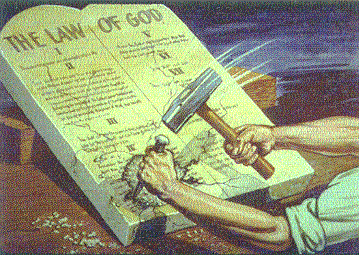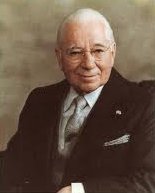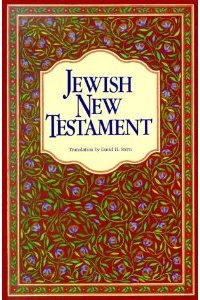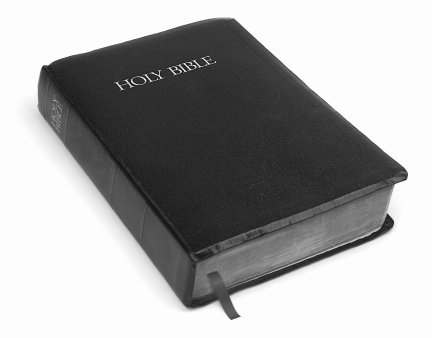|
SABBATH SERIES #1
Introduction

Sunday or Saturday Worship?
For over 1,500 years we have been told that Sunday is the Christian Holy Day on which we are commanded to gather in churches to worship. We have also been told that Sunday is the first day of the week and that the reason it was chosen was because it was on this day that Christ rose from the dead. And we have also been told that Sunday replaces the Jewish Saturday Sabbath which is the seventh day of the week. Whether you go to a Roman Catholic, Eastern Orthodox, Coptic, Protestant or Mormon Church you will be told the same thing. People have been claiming this for so long that almost nobody questions it let alone knows why they are doing it. It has become, in the minds of the vast majority of Christians, an unchallenged and unchallengeable axiom of their faith.
Dissenters
Not everyone has agreed that this is so, though, and not just in recent times. Over the centuries dissenters from the Western and Eastern Church traditions have claimed that Elohim (God) never abolished the Sabbath Day and never transferred it to our modern Sunday. All of them were persecuted and most of them lost their lives. The few survivers were forced to go underground. Not until modern times and the birth of the liberty movement, principally in the United States that was founded on a libertarian charter, did Sabbatarians dare to come above ground and proclaim what they believed openly without fear of oppression. The Sabbatarian Movement may be said to have got under way from about the 1890's onwards. Before then they weren't taken very seriously.
Seventh-Day Adventists & Seventh-Day Baptists
 Perhaps the most famous proponents of Sabbatarianism in the modern world were the Seventh-Day Adventists who emerged in the middle part of the 1800's under their leader, Ellen G. White (see picture to right), though they were by no means the first. Sabbatarian Baptists, known as Seventh-Day Baptists, who emerged in England in the 1650's, were doubtless, in part, her inspiration, and were probably the first Saturday Sabbtarians in 'modern' times. The Seventh-Day Adventists laid such stress on the Sabbath that they incorporated it into their name, much as Baptists have done the same with the doctrine of baptism by complete immersion. If you look at any Adventist literature you will see that this is a theme that dominates their writings.
Perhaps the most famous proponents of Sabbatarianism in the modern world were the Seventh-Day Adventists who emerged in the middle part of the 1800's under their leader, Ellen G. White (see picture to right), though they were by no means the first. Sabbatarian Baptists, known as Seventh-Day Baptists, who emerged in England in the 1650's, were doubtless, in part, her inspiration, and were probably the first Saturday Sabbtarians in 'modern' times. The Seventh-Day Adventists laid such stress on the Sabbath that they incorporated it into their name, much as Baptists have done the same with the doctrine of baptism by complete immersion. If you look at any Adventist literature you will see that this is a theme that dominates their writings.
The Worldwide Church of God and Break-offs
 Adventists and Seventh-Day Baptists were joined in the early 1900's by a new movement started by radio evangelist Herbert W. Armstrong (see picture to right) who not only insisted that the Sabbath was the believer's true day of worship and assembly but also insisted that Christians were obliged to observe the Hebrew Festivals too. His organisation grew rapidly to become the highly profiled Worldwide Church of God with its successful internationally distributed free magazine, The Plain Truth. Following his death, his successor gradually turned Armstrong's Church into traditional Protestant Sunday worship. Revolt was not slow in the coming and by the end of the century numerous split-offs resulted attempting to continue the original Armstrongian Sabbath traditions. One of the largest of these today is the United Church of God which publishes a magazine called The Good News. All of them adhere to a Saturday Sabbath.
Adventists and Seventh-Day Baptists were joined in the early 1900's by a new movement started by radio evangelist Herbert W. Armstrong (see picture to right) who not only insisted that the Sabbath was the believer's true day of worship and assembly but also insisted that Christians were obliged to observe the Hebrew Festivals too. His organisation grew rapidly to become the highly profiled Worldwide Church of God with its successful internationally distributed free magazine, The Plain Truth. Following his death, his successor gradually turned Armstrong's Church into traditional Protestant Sunday worship. Revolt was not slow in the coming and by the end of the century numerous split-offs resulted attempting to continue the original Armstrongian Sabbath traditions. One of the largest of these today is the United Church of God which publishes a magazine called The Good News. All of them adhere to a Saturday Sabbath.
Messianic Judaism
 Last to enter the scene, running separately but parallel to the Churches of God, were the Messianic Jews. These were, and continue to be, largely converts from Judaism so their Sabbath observance is rooted in that tradition. They, too, follow Saturday as the Sabbath Day continuing in the Talmudic traditions of their ancestors. Though no one man may be said to be the 'father' of Messianic Judaism, there is no doubt that Dr. David H. Stern, who translated the Jewish New Testament (1989) (see picture to right) and then the Complete Jewish Bible, played a major rôle with his seminal Messianic Jewish Manifesto (1988).
Last to enter the scene, running separately but parallel to the Churches of God, were the Messianic Jews. These were, and continue to be, largely converts from Judaism so their Sabbath observance is rooted in that tradition. They, too, follow Saturday as the Sabbath Day continuing in the Talmudic traditions of their ancestors. Though no one man may be said to be the 'father' of Messianic Judaism, there is no doubt that Dr. David H. Stern, who translated the Jewish New Testament (1989) (see picture to right) and then the Complete Jewish Bible, played a major rôle with his seminal Messianic Jewish Manifesto (1988).
Most of these Messianic Jews do not, however, insist that Christians observe their Saturday Sabbath. For the most part they maintain that there are two groupings of true believers - those of Jewish origin who are obliged to follow the Jewish Saturday Sabbath and those of 'Gentile' origin who may continue worshipping on Sunday if they so wish because they are not, they claim, under the same covenant. Gentiles who wish to become Messianic Jews are usually welcomed though they are expected to undergo circumcision and follow many of the traditions of the Talmudic Elders.
Other Sabbatarian Messianic Groups
To Messianic Jewish adherents of the traditional Jewish Sabbath may be added a number of more recent groups such as those calling themselves 'Nazarene Jews' and some Two-House Messianic Israelites (Trimm, Nydel and others). Other independent Sabbatarian groups exist as well with no particular denominational name, some forming associations of independent congregations. What all of these groups have in common - from the Seventh-Day Baptists to Messianic Jews - is their belief that there has been an unbroken chain of Saturday worship since the days of Moses or earlier from the time of our first parents, Adam and Eve.
The Sunday vs. Saturday Debate
Numerous books, videos and websites exist that vigorously debate whether the Orthodox Christian Sunday Lord's Day or the Jewish Saturday Sabbath day of worship is mandated for true believers with a small minority of people claiming it doesn't matter at all so long as you worship one day in seven. The latter nearly almost, without exception, choose to assemble on Sundays because that is the most convenient. Since, they maintain, the Law has been abolished and we must live by the Spirit alone, it is assumed that people will choose the 'right' day to congregate weekly. The fact that they nearly all choose Sunday does not mean that this is an 'inspired' choice, however, as I know some who choose Saturday in Israel and Friday in Muslim countries so as not to upset the natives. Only a few, like the Jehovah's Witnesses, claim there is no special set-apart day for worship at all, but because weekends tend to be the only time when people are free for any substantial period of time, that is when they tend to have their main daytime weekly meeting.
A Futile Debate
I have witenssed, and sometimes participated, in some of these online debates with Sunday-ers in one corner of the boxing ring and Saturday-ers in the opposite corner. Very rarely are Saturday Sabbatarians converted back to Sunday worship though many are being converted the other way round. But for the most part the Sunday-ers and Saturday-ers remain entrenched in their own camps as both parties bring up inconsistences in each other's belief system that cannot be resolved. Most make their choice based on the balance of historical evidence, such as it is, and do not probe too deeply into what the Bible actually says. They are unable to see the wood from the trees because they are both working from a major false assumption about the calendar. But more of that in the next series.
I began my life as a Christian in 1988 worshipping on Sundays and then converted to Messianism in 1999 and became a Saturday-worshipper. But in those days I had no idea that both camps were making a fundamental error in their choice of a counterfeit calendar. It wasn't until 2012, 35 years after I first met Christ, that I finally discovered the truth.
The First Believers
However, let's take first things first and try to keep it as simple as possible. Let us begin by at least agreeing with what the Bible unambiguously says. In this first series of articles we shall establish which day of the week the first Christians gathered to worship on, both those of 'Jewish' as well as those of 'Gentile' origin. Though these two racial labels are themselves questionable, we shall for now use them to avoid confusion. By 'Jew' we shall be referring about those descendants of Abraham, Jacob and Judah who observed the Law of Moses and by 'Gentile' we shall be referring to everyone else of different racial and non-Mosaic religious (pagan) backgrounds. And for now we are only interested in the peoples of New Testament times. Later we will refine our definitions in the light of 2,000 years of modern history.
The Two Main Questions
In this first short series, and in a second longer follow-up series, we are only going to be interested in two questions:
- 1. Did either Christ or the original apostles ever abolish the Israelite Seventh Day Sabbath? and
- 2. Did they ever establish a new Christian Day of Worship to be observed on the First Day of the week?
Roman-Gregorian Saturday or Sunday
What we are not going to debate is whether this 'Seventh Day' was a modern Roman-Gregorian Saturday of whether this 'First Day' was a modern Roman-Gregorian Sunday because it is the thesis of this ministry that they were neither. We will address this particular issue in another series. For now what is important is that we answer the two questions that I have just posed, however much some of our readers may be itching to get into the question of the authentic biblical calendar, for otherwise we will cross wires and go around in circles. Our education must take place in manageable stages so that we do not choke on too much meat all at once, the same way I myself learned.
Two Requests of the Reader
For any serious study to be made, especially if it may upset deeply cherished traditions, there are two things I must ask of you, the reader:
- 1. That you are completely honest about yourself and your religious/denominational traditions; and
- 2. You let the Bible speak for itself and not try to interpret it to fit any preconceived doctrine.
Assumptions About the Bible and History

I do have to say that we make one very important assumption here that is our ground rule for study, and it is this: that the Bible (Protestant Canon, that minimum collection of scriptures which nearly all believers are agreed on) in its original autographs is infallibly true and that it takes precendance over all other kinds of evidence. And whilst we shall take historical evidence seriously, we shall not make the same assumption about it being infallibly correct. History, such as it is, is a record of both truth and error, and we cannot assume that just because certain believers did this or that, that they were somehow automatically right, even if the whole world did it. Nor do we assume that the majority were necessarily right either because the evidence of history shows us that the majority then - as now - tends to be wrong. So the Bible - and the Bible alone - takes precedence over all secular statements because we believe it to have been inspired by God Himself. If you are not sure about this question, then you really need to sort that question out in your mind first. (See, Canonical Scripture: That Utmost Priority).
We Believe...
I will be upfront and tell you, in advance, what our own conclusion is so that you know where we are coming from from the start. Our contention is that Yahweh-Elohim, our Heavenly Father created the Sabbath Day of Rest as an eternal ordinance for all mankind and that it will remain so until the heavens and the earth have passed away. We do not believe that the Sabbath Day has ever changed and that it is the same day of rest commanded by Yahweh following the Creation. We also believe that this commandment has been given for the blessing of mankind and not as a condition of salvation, which is by faith in the atoning work of Yah'shua the Messiah (Jesus Christ) alone. We believe, moreover, that those who claim to be owned by Messiah who, having been enlightened by the biblical revelation (as on any particular commandment of Yahweh) and who choose to deliberately disobey it, must of necessity reap the spiritual and physical consequences, and must not only forfeit the fullfness of the presence of the Ruach haQodesh (Holy Spirit) in their lives (and therefore divine protection and blessings) but must incur the wrath of Elohim (God) at the Believer's Judgment (at which time we receive, or forfeit, certain heavenly rewards based on our works).
The Gift
We believe that Elohim (God) is not to be trifled with, and those who genuinely fear (revere) and love Him will wish to be obedient to Him in all things in token of their gratitude for their salvation. The Sabbath Day is Yahweh's gift to His people, and those who reject it, seeing clearly what the Word teaches about it, must of necessity be denying Him in some way.
A Sign of True Faith
We believe, as Scripture teaches, that Sabbath obedience is one of the signs of true faith, and that those who love Yahweh and His commandments - that include observing the Sabbath - will naturally wish to gather together for worship and fellowship on this day. This final gathering out of groups, associations, congregations, assemblies, synagogues and churches represents, we believe, the beginning of the separation of the wheat from the tares (Mt.13:25-30) - of true Christian Israel from the counterfeit gentile forms, and preceeds the Great Tribulation.
A Sign of Messianic Israel
Sabbath observance was, and is, and shall ever be, a sign of true Messianic Israel, which is all true believers. It is one of the ways that Yahweh's people are made visible to the world. It is one of Israel's standards, and those who are of Israel will bear it. And since the community of true believers and Israel are one and the same, all true believers will be bearing it.
Follow through with us now as we take a look at this important matter from the vantage point of what the New Testament teaches...
First Edition, 6 August 1999
Second Edition, 21 January 2013
|


